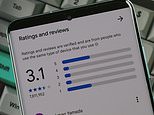Confessions of a flight attendant: From fending off sharks to delivering babies, a former Virgin Atlantic air hostess reveals how cabin crew handle the strangest scenarios in the sky
- Crew are taught to deal with all situations from child birth to fighting fires
- Plane ditching, fire-fighting and medical emergencies are all part of training
- The former flight attendant wrote a book after working onboard for 12 years
Potential terrorists on board, racist passengers and pilot incapacitation are just some of the challenges that air stewards face when on duty.
Former air hostess, Mandy Smith who worked for Virgin Atlantic for 12 years recalls tough days involved being groped, having food thrown at her and looking after a passenger suffering a heart attack - all the while maintaining an air of calm professionalism.
MailOnline Travel spoke to the former flight attendant and author of 'Cabin Fever: The sizzling secrets of a Virgin air hostess' who revealed the most bizarre and dangerous situations she has coped with - both in training and in practice.

Whether it be a passenger illness or a fire, cabin crew are trained to communicate without scaring passengers
What unusual emergency situations are cabin crew taught to handle?
From survival in the desert to delivering babies- cabin crew are trained to deal with it all.
Mrs Smith told MailOnline Travel: 'In training, we are taught to deal with everything from the aircraft ditching, flight crew incapacitation, fire-fighting, medical emergencies to evacuation procedures.
'We are also taught how to spot terrorists [and] how to deliver babies.
'Crew are taught by ex-SAS instructors how to restrain and hold individuals who pose a threat to the aircraft safety [and] how to deal with unruly or drunken passengers.
'In addition to all this, we are also taught survival techniques in the highly unlikely event of landing in the desert, sea, arctic or jungle.

Potential terrorists on board, racist passengers and pilot incapacitation are just some of the challenges that air stewards face when on duty, said Mandy

Mrs Smith worked for Virgin Atlantic for 12 years and was trained to deal with a number of situations
'Then there's the major incident training, which involves triage - a sieving process where decisions are made based on injuries present, coupled with your gut instincts of how the casualties are.
'We are taught to deal with sharks because it could be a possibility and it's better to be prepared.
'We are taught to defend ourselves by attacking their weak points - nose and eyes - and that the paddles which are kept in our life rafts, serve well as defensive weapons.'
What should you do if the pilot is incapacitated?
During her years assisting customers at 30,000ft, Mrs Smith was faced with a difficult situation when the pilot suffered a heart attack.
A junior crew member from Economy helped the first responder land the aircraft after the captain collapsed in front of the passengers on the upper deck.
Mrs Smith said: 'We treated [the pilot] as any other passenger and gave him the best care we could on-board.
'The captain had had a mild heart attack and was unable to continue with his duties, so we followed our pilot incapacitation procedures and requested a cabin crew member be placed in the flight deck to help out with the check-lists on landing.
'Virgin Atlantic always have at least two pilots each flight and one can land the aircraft on his own, but our procedures require two to complete the landing check-lists.'

Pictured with founder of Virgin, Richard Branson, Mrs Smith once helped a pilot who suffered a heart-attack

'Crews are taught to deal with everything from the aircraft ditching to flight crew incapacitation'
What is the strangest scenario cabin crew have to deal with?
Despite having been on hundreds of flights, Mrs Smith claims her weirdest experience was when she began training in dealing with the requests made by different cultures and religions.
She said: 'For me I found one of the weirdest situations we are trained to deal with was whilst in diversity training.
'Certain cultures and religions do not like being served by women on their period so we are taught to firstly not be offended and how to answer these awkward questions on board.
'This happened to me quite a few times.
'"Are you having your feminine time?" is how it is usually phrased [and] a typical response would be "We are aware of your concerns and the matter has been dealt with"'.
'We're taught in training not to serve people with such request and to recognise who might be offended by this, so we would get our colleagues to cover this area beforehand.
'It doesn't stop people asking though.
'I've also had a situation where a person would not sit next to another because of his skin colour and I found this very weird.
'I basically upgraded the poor man they were harassing and made it clear we have a zero tolerance policy when it comes to prejudice.'
How do cabin crew handle medical emergencies?
Heart attacks on board are quite scary and frightening for all involved, said Mrs Smith.
She said: 'I found that if you acted confidently this would always calm the ill passenger and the situation.
'Once I used the defibrillator on a gentleman suffering from chronic arrhythmia.
'Fortunately his wife was able to provide a folder containing his full medical history which helped me deal with the situation.
'I've also had an engine fire on-board, which was dealt with in a very calm and professional manner.'

From fending off sharks to delivering babies - cabin crew are trained to deal with the strangest of situations
How would you deal with potential terrorists and criminals?
Before the September 11 terrorism attacks in 2001, cabin crew were taught to be compliant, Mrs Smith reports.
Following the disaster, the manuals were rewritten and crew were then advised to engage passengers and take any steps necessary to stop them getting into the flight deck if they believed there was a risk.
The former Virgin flight attendant was faced with a situation in 2002 when two men - who were later discovered to be on the FBI’s 'Most Wanted' list - boarded an aircraft.
Mrs Smith said: 'In 2002 at Heathrow Airport on-board a San Francisco-bound flight, two crew members and I had been watching two men towards the rear of the cabin who had been setting off all sorts of warning signals.
'One was sitting in the middle row of seats, the other in a window seat a few rows behind.
'A few things had triggered our curiosity - they looked rather shifty, jumpy and irritable and [were] staring at other passengers.
'I alerted my flight service manager and checks were swiftly made with ground staff.
'Alarm bells started ringing when we discovered they’d booked their tickets on the same credit card but had chosen to sit separately.
'The jet-way was reattached, police stormed the cabin and the two men were handcuffed and escorted off the plane.
'When we informed the passengers that they too would have to leave the aircraft, some of them went berserk, demanding compensation and threatening to complain to Richard Branson.
'I have also had terrorists on-board another time too, where we worked in conjunction with the FBI whilst they followed them to their final destination.'

Mrs Smith's book, 'Cabin Fever: The sizzling secrets of a Virgin air hostess', was published in April 2014
How do staff inform each other during an emergency without alarming passengers?
In an emergency it is important to remain calm, Mrs Smith said.
Whether it be a passenger illness or a fire on-board, cabin crew are trained to communicate without alarming passengers.
Mrs Smith said: 'We do have many codes we use when speaking to each other and over the PA (tannoy), which every crew member on board would understand and react to - depending on the situation.
'If someone was having a baby on-board we would simply use word of mouth rather than the PA so as not to disturb the other passengers.
'It's only in a 'time critical' emergency that we would use the PA to inform the whole crew if equipment such as the defibrillator was needed or so the crew would know what their role would be in the situation.'
How do you control your facial expressions during an emergency?
Mrs Smith said: 'After years of training we are de-sensitised to many situations by role play and taught in a 'verbatim' style which words to use.
'This has been proven to help crew react under certain situations.
'These then become second nature and even though you don't know how you will actually act under pressure, the situations I've had that were scary, I didn't even question the threat to my own safety until after the event.
'Having the 'situational awareness' really helps and it's usually people who are not informed that would panic.'
Most watched News videos
- Scottish woman has temper tantrum at Nashville airport
- Tesla Cybertruck explodes in front of Trump hotel in Las Vegas
- Mass panic as New Orleans attacker flies down Bourbon street
- Shocking moment zookeeper is fatally mauled by lions in private zoo
- Horrific video shows aftermath of New Orleans truck 'attack'
- Meghan Markle celebrates new year in first Instagram video
- Tesla Cybertruck burns outside Trump hotel in Las Vegas
- See how truck that drove into crowd made it through police barrier
- Cheerful Melania Trump bops to YMCA at Mar-a-Lago NYE bash
- New Orleans terror attack suspect reveals background in video
- Plane passenger throws drink at flight attendant in boozy fight
- Horrifying moment yacht crashes into rocks and sinks off Mexico coast















































































































